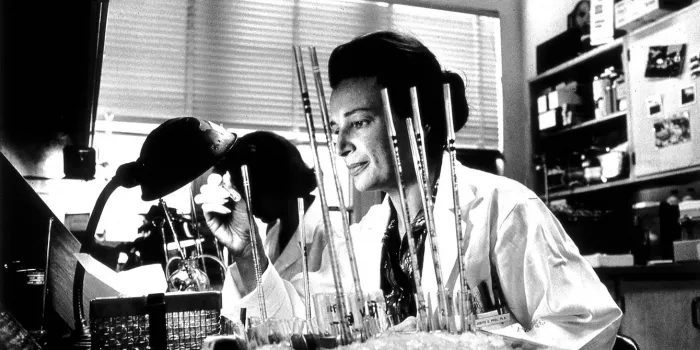Named for the pioneering Stanford University physiologist who discovered the method for creating cryoprecipitate in 1965, revolutionizing care for people with hemophilia, the Judith Graham Pool Postdoctoral Research Fellowships support individuals conducting basic science and preclinical research in bleeding disorders. Since the fellowship’s founding by the National Hemophilia Foundation (NHF) in 1972, it has helped scientists deepen their understanding of bleeding disorders with hopes of developing better treatments and, someday, a cure.
In recent years, NHF chapters, families and family foundations have exclusively funded the fellowship program, commonly known as JGP, demonstrating their support for the crucial work that fellows do.
“None of the funding for JGP is through pharma or industry partners,” says Michelle Witkop, DNP, FNP-BC, head of research for NHF. “That fact helps to free up the researchers in ways that we might not even realize.”
Each year, JGP awards funding to three to five postdoctoral fellows. Researchers receive $104,000 over two years, making it “one of the top awards nationally for inherited bleeding disorders,” Witkop says.
In 2018, 23 NHF chapters together raised more than $100,000 for JGP, with donations ranging from $200 to $50,000 per chapter. Funding also came from Hemophilia of Georgia, with a 2016 pledge of $1.25 million over five years, and the Cirelli family of New Jersey, with approximately $60,000 annually.
“When people ask, ‘How can I support research?’ encourage your local chapter board to support the JGP,” Witkop says. “If a chapter sends $1,000, that $1,000 will go to a researcher. That’s important for people to know.”
Chapters have used a variety of methods to raise funds. Need some inspiration? The following chapters have led the way in donations to JGP.
Chapters heed the call
Hemophilia Center of Western New York
Buffalo, New York
Hemophilia Center of Western New York is an NHF chapter that’s part of Western New York BloodCare, a federally funded hemophilia treatment center that earns funds through its 340B pharmacy. Each year since 2013, the chapter has donated $50,000 of its pharmacy earnings to JGP.
“Probably half a million dollars went to the JGP fellowship, if not more, over at least 10 years,” says Laurie Reger, executive director of Western New York BloodCare. Reger notes that supporting research is a priority for the center. “Not only our physicians, but our board of directors all see the strong value and need for research for hematology. We know there is a shortage of hematologists that study benign hematology, hemophilia and bleeding disorders.”
New England Hemophilia Association
Dedham, Massachusetts
New England Hemophilia Association’s Unite for Bleeding Disorders walk is the nation’s largest, and the chapter has chosen to donate $15,000 over the past three years to JGP.
“With an increase in our walk, the NEHA board and staff strongly felt as though we needed to make a generous donation to the research effort that NHF does,” says Rich Pezzillo, executive director of NEHA. “When you hear that it’s 100% funded by the chapters, it’s even more of a call to action as to how the chapters can support these research efforts.”
The Lone Star Chapter of the National Hemophilia Foundation
Houston, Texas
For the past six years, the Lone Star Chapter has donated $10,000 annually from money raised during its annual Unite for Bleeding Disorders walk fundraiser.
“Part of our mission is supporting research for a cure,” says Melissa Compton, executive director of the Lone Star Chapter. “Treatment has come so far in the last 15 to 20 years, we feel it’s very important to support research for better treatments and a cure.”
More information on the Judith Graham Pool Postdoctoral Research Fellowships

